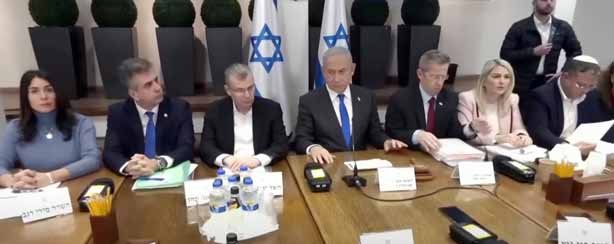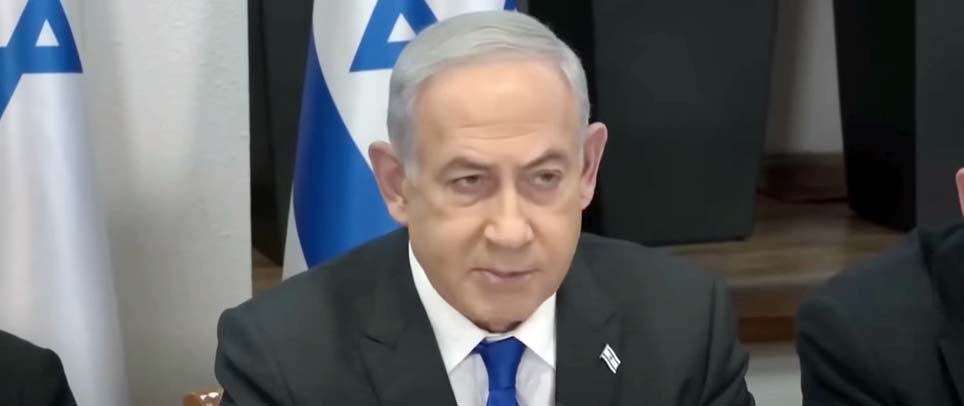January 18, 2025
Following months of hard talks and worldwide pressure, Israel’s full cabinet finally endorsed a ceasefire agreement with Hamas, scheduled to take effect at 8:30 a.m. local time on Sunday. Mediated by Qatar, the United States, and Egypt, this historic agreement pledges to end the 15-month-long battle leaving thousands dead, displaced millions, and damaged neighborhoods in both Israel and Gaza.
Important Agreement Components
The ceasefire agreement is constructed on a number of important clauses:
- Hostage Release and Prisoner Exchange:
One of the centerpieces of the accord is the exchange of hostages and detainees. 33 Israeli hostages—including women and children—held captive in Gaza has been promised by Hamas to be released. Israel will free 737 Palestinian detainees in return, many of whom have been imprisoned years without trial.
An Israeli negotiator speaking under anonymity to BBC News said, “This deal brings relief to families on both sides, but it also comes with deep wounds that will take years to heal.”
- Military Withdrawals:
Israeli Defense Forces (IDF) will withdraw from highly populated areas of Gaza, enabling civilians to return to their neighborhoods. However, uncertainties remain about the timeframe for this pullout and how long the ceasefire will last.
- Humanitarian Aid:
Gaza will get much-needed help after blockades and recurrent bombings cause extreme humanitarian crises. Hundreds of relief vehicles will be permitted daily access to bring crucial food, water, and medical supplies. “The people of Gaza are suffering immensely. This truce is merely the beginning of what needs to be a long-term solution,” said a spokesperson for the UN Relief and Works Agency (UNRWA).
Political Reactions and Divisions
The decision has created severe splits among Israel’s political scene. National Security Minister Itamar Ben-Gvir, known for his tough stance, has openly rejected the pact. “We are releasing terrorists with blood on their hands. This will simply empower our enemies,” Ben-Gvir said during a heated cabinet meeting. Reports from The Times of Israel confirm that despite his vehement opposition, the accord passed with a majority vote, demonstrating a broader desire for peace among the populace.
Prime Minister Benjamin Netanyahu, defending the pact, highlighted its significance for Israel’s security and its humanitarian responsibilities. “This is not an easy decision, but it is the right one to ensure the safety and well-being of our citizens,” Netanyahu remarked.
In Gaza, Hamas leaders have praised the accord as a victory, referring to the freeing of Palestinian captives as a triumph for their cause. However, opponents on both sides worry that the settlement might not address the core reasons fuelling the conflict, allowing opportunity for future escalations.
International Mediation and Global Support
The truce reflects the completion of months of behind-the-scenes discussions. Qatar had a significant role in brokering the arrangement, with aid from the United States and Egypt.
“We have been working tirelessly to ensure this agreement reflects the needs of all parties involved,” remarked Qatar’s Prime Minister Sheikh Mohammed bin Abdulrahman Al-Thani during a press conference.
U.S. Secretary of State Antony Blinken hailed the accord but urged both sides to remain dedicated to its execution. “This agreement is a significant step, but it is only the beginning of a long road to lasting peace,” Blinken remarked.

Broader Implications
The truce has provoked a mix of relief and mistrust among inhabitants of the impacted districts. In Tel Aviv, families of captives gathered in emotional anticipation of their loved ones’ homecoming. “I can’t describe the feeling of knowing my daughter is coming home,” said Eitan Malka, whose 12-year-old daughter was taken captive during a raid.
In Gaza, inhabitants like Saeed Alloush remain cautiously hopeful. “We’ve lost so much. The truce is a small beginning, but we need more than promises,” he said, standing amid the rubble of his family home.
Globally, the accord has rekindled conversations about the long-term sustainability of a two-state solution and the need for thorough peace talks. Analysts caution that without addressing the core causes of the conflict, including territorial disputes, economic blockades, and human rights violations, the truce may only provide a temporary reprieve.
Humanitarian and Economic Concerns
The humanitarian situation in Gaza is horrible. According to the World Health Organization, Gaza’s healthcare sector is on the brink of collapse, with over 80% of facilities either destroyed or non-functional due to airstrikes. Rebuilding the region’s infrastructure will require international investment and cooperation, with estimates of at least $10 billion needed over the next decade.
On the Israeli side, border villages that were regularly pounded by Hamas rocket fire are coping with the anguish of displacement and loss. “This truce gives us a chance to rebuild our lives, but the fear of it all happening again is always there,” said David Katz, a farmer from Sderot.
Challenges to Implementation
While the ceasefire is a great success, its implementation will require rigorous monitoring by international observers. Ensuring that both parties comply to the conditions of the agreement will be crucial in averting a return into violence.
“The biggest risk is a lack of trust,” stated an analyst from the International Crisis Group. “If either side feels the other is not honoring the deal, it could unravel quickly.”
Conclusion
The Gaza ceasefire accord gives a glimpse of hope for millions devastated by this extended conflict. While the pact is a start toward peace, it emphasizes the huge hurdles ahead, from rebuilding damaged towns to tackling the deep-seated political and societal concerns fueling the violence. As the world watches, the success of this agreement will depend on the determination of all parties to honor their pledges and work for a durable conclusion.
Sources
- AP News: “Middle East latest: Gaza ceasefire set to start 8:30 am Sunday after 15 months of war.”
- The Times of Israel: “Security cabinet approves hostage-ceasefire deal; full cabinet meets to review, vote on it.”
- BBC News: “Israel’s cabinet approves Gaza ceasefire and hostage release deal.”
- Hürriyet Daily News: “Israeli cabinet to meet on ceasefire after PM says hostage deal finalized.”
- The Australian: “Missile attack alert after Israel prepares for truce swap.”

